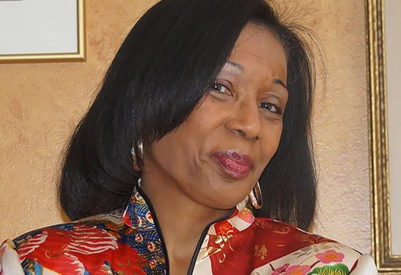
cover photo: Pastor Bernard McNeill by Mike Shaw Photography
SOUTHWEST TRIBUNE
New Life Fellowship’s Senior Pastor Bernard McNeill grew up in Linden, New Jersey, before his duties in the pharmaceutical industry suggested a move to Syracuse. And shortly after, to the city of Rochester.
Pastor McNeill has served at full capacity at the church since 2009 as a youth pastor for 15 years, before becoming an associate pastor and now senior pastor
The Conversation:
Southwest Tribune: From the pharmaceutical industry to ministry. Is there a connection between the two?
Pastor McNeill:
I didn’t see it as a younger person, even with the kind of training the pharmaceutical industry exposes you to such as, doing presentations in front of large groups and small groups. I enjoyed my job. So, I didn’t realize I was being trained to become a part of God’s ministry. I probably wouldn’t had said yes to ministry, if the choice was before me when I was much younger. But, unlike Linden and Syracuse, when I came to Rochester, I spent a lot of time volunteering at church (New Life) doing youth ministry.
Both, my wife Tina and I started off as group leaders with youth, before becoming youth pastors. The youth we started with are in their late 30s now. Nonetheless, this was the beginning of my desire to help young people, mainly teenagers. Right here in the 19th Ward, teenagers knew on Friday night at the church, they can expect to have a good time accompanied with food and games. However, it was never a straight-line to the ministry. God was taking me on a slower path. And I’m happy [He] did it that way.
Southwest Tribune: The historical Black Church in your words?
Pastor McNeill:
I think historically, the Black Church reflected a societal structure that we had been excluded from. It was an opportunity for growth and support. The church was always there beyond its spiritual component to provide structure and a voice that could be of unity, encouragement and a challenge that you could be more and do more. A voice that help defined, who we were as a people. And says, this is how we see, and God see you, not mattering what society says, how they see you
It was a caste system we lived in from Monday to Saturday and on Sunday, we could celebrate ourselves and be accepted. And be everything, what we want to be and everything we truly are. I think, the Black Church allowed the freedom to grow and pursue dreams or whatever aspirations we may have as a people. It provided nurturing support and encouragement to help us grow. It was a beacon of hope.
Southwest Tribune: Is the ‘influence’ of leaders of the Black Church as commanding in the black community, when compared to their relevance during the Civil Rights Movement?
Pastor McNeill:
Our influence is not like the days of the Civil Rights Movement. Responsibility I think yes. We have a responsibility to our community of trying to find out how we address the issue of relevance in a world where it’s much more bog down with many other options that people look at, when they look for help. The church of yesterday was the bedrock for the community to seek help and structure and the opportunity for growth.
However, they’re other alternatives now that are there other than the church that people seek those same things from. So as far as having a united voice, it has become a shared responsibility, which none of us has own very well. Even though they’re many more places to get help, the difficult thing is sadly, there’s still a great need for it.
So, in some cases the church must learn how to partner with other organizations who see similar responsibility to the community. We may have to partner with schools, and groups like the Boys and Girls Club or recreation centers and similar others. If we are trying to reach the community, the church cannot wait for the community to come to it, we may have to sometimes go to the community and say we are here too. And we are going to stand alongside this group and offer our help as well. I think gone are the days when a church or several churches will be the answer to everything. Things are too complex than the way they used to be. And sadly, the needs are more complicated as well.
Southwest Tribune: Where’s the Black Church?
Pastor McNeill:
The church is involved, but it’s done differently. And I can use my church congregation as an example. Within this congregation, they are congregants who hold positions in many different social and political areas, who are the church at the table as opposed, to a large body of the church asking for space at the table. You can go to almost any local congregation and you’re going to find members of those churches sitting on boards and holding positions of influence, which is different than when it was.
It’s different from when we were trying to get ‘access’ to now, we have access, which is embedded with influence and power. And we can steer certain things to certain directions because we are in the conversation. Now, to be at the table and don’t have no idea of what’s happening in my own community is a disservice to the community.
However, the Black Church is everywhere now. I don’t know a place where we are not. They are a lot of leaders here, who has a strong faith-based belief. It’s hard for some people to visualize that if you’re looking to duplicate every measure on the blueprints of past leaders of the ministry.





